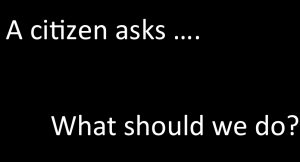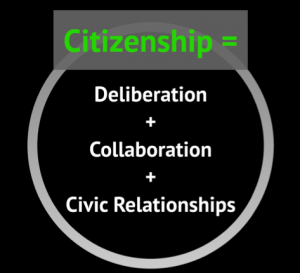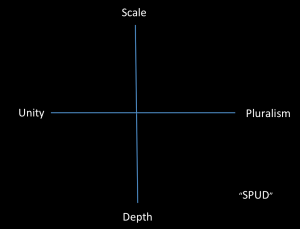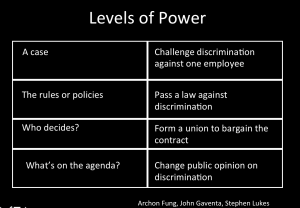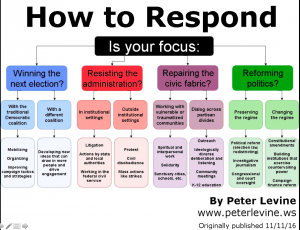Maria Bartiromo (Fox News): As the commander-in-chief, as the president of this great country, what can you do to bring us together?
Donald Trump: Our people are so incredible. … Do you know, there’s probably never been a base in the history of politics in this country like my base. I hope the other side realizes that they better just take it easy.
As Jonathan Chait notes, Trump equates “us,” the people of America, with “the people who voted for him.”
This is the rhetorical move that Jan-Werner Müller, in his globally influential book (2016), uses as the definition of “populism.” Populists “claim that they and they alone represent the people. All other political competitors are essentially illegitimate, and anyone who does not support them is not properly part of the people. … Elites are immoral, whereas the people are a moral, homogeneous entity whose will cannot err.”
Müller has previously quoted Trump–“the only important thing is the unification of the people – because the other people don’t mean anything”–as evidence that the current president is a populist, in this bad sense of the word.
I agree that the slippage between Trump’s supporters and “the people” is a very bad sign. However, it is not straightforward to define populism (meaning a problematic phenomenon) in this way. Trump says many things and is inconsistent in his appeal to “the people.” Meanwhile, a wide variety of political actors also depict the public as a homogeneous entity that is on their side.
Some of them define “the people” in racial or ethno-national terms. That tendency seems more accurately described as racism or xenophobia than as populism, especially if anti-racists like Venezuela’s Hugo Chávez count as populists (as Müller would suggest).
And sometimes it is the strongest champions of democratic institutions who use rhetoric that looks populist according to Müller’s definition. For instance, Jimmy Carter presented himself as an ordinary American (a peanut farmer and a Christian, not a Washington politician) who could best reflect the values shared by all Americans (Johnstone 1978). Carter invoked a unitary public and promised to connect directly to the people, unmediated by interests and organizations. His Inaugural Address could be coded as populist rhetoric, in Müller’s sense of the word. Yet Carter was committed to constitutional limits, respected his critics and the opposition, and made the promotion of democratic freedoms a centerpiece of his agenda.
Thus it is not clear that searching for Müller-style populist language will identify actors who are hostile to democratic institutions and processes. There is an upsurge of repression around the world—and it is not limited to racists and xenophobes—but there is a better word for it than “populism.” That word is “authoritarianism.”
For the purposes of empirical research, I would dispense with “populism” in the Müller sense and look instead for authoritarianism and racism as distinct but sometimes overlapping phenomena that are ascendant in our time.
Müller is, however, right that there are pitfalls to invoking a unitary public that is on one’s side–or defining one’s side as “the people.” This is an excuse for trampling on rights, whether your opponents are demographic minorities and immigrants (the right-wing variant), or corporations and the rich (the left-wing version), or extremists (the centrist version). It’s always better to recognize the legitimacy of the actual human beings who disagree with you and who vote for the other side.
Citations: Jan-Werner Müller, What Is Populism? (Philadelphia; Universoty of Pennsylvania Press, 2016), p. 101; Christopher Lyle Johnstone, “Electing Ourselves in 1976: Jimmy Carter and The American Faith,” Western Journal of Speech Communication, vol. 42 Issue 4, *Fall 1978), p. 241-249. See also Trump at the confluence of populism, chauvinism, and celebrity; fighting Trump’s populism with pluralist populism; separating populism from anti-intellectualism and two kinds of populism.



